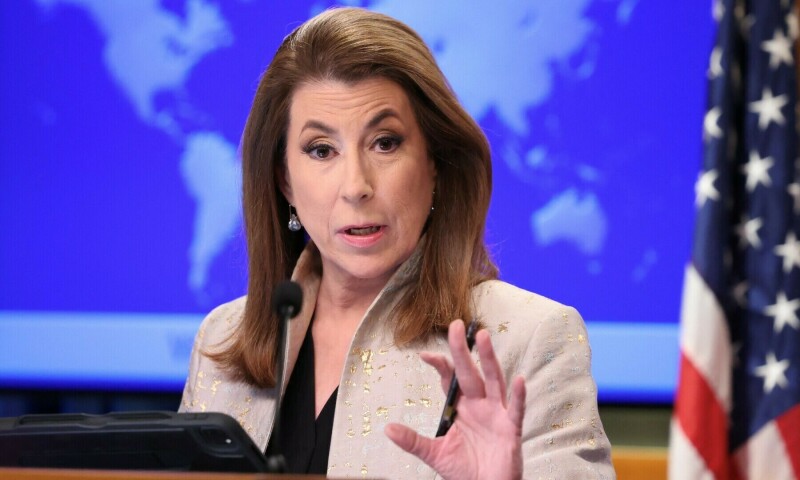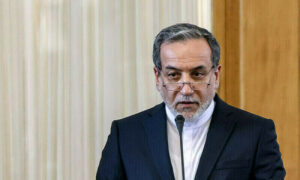WASHINGTON: The Trump administration seems to have put off the process of imposing visa restrictions on citizens from several countries whose vetting procedures were deemed insufficient by US security agencies.
The proposed ‘travel ban’ was expected to apply new restrictions on citizens from more than 40 countries, including Pakistan, travelling to the US.
The move came about following an executive order, signed by President Donald Trump on Jan 20, titled ‘Protecting the United States from Foreign Terrorists and Other Threats’.
That order instructed federal agencies to assess screening standards worldwide and propose visa restrictions by March 21. However, the deadline passed without an announcement, and the State Department later confirmed that there’s no new timeline for the policy’s implementation.
Delay in finalising list of nations whose citizens could face additional curbs on US travel points to internal disagreements, legal and bureaucratic challenges
When asked about the deadline for the State Department to submit a report to the president detailing recommendations for visa and travel restrictions, State Department spokeswoman Tammy Bruce told a March 31 news conference the “target date” no longer applies.
Earlier, on March 21, Ms Bruce had addressed speculation about an impending announcement, saying: “The deadline is not today”.
At the time, she maintained that a review process was still ongoing “for us to look at the nature of what’s going to help keep America safer in dealing with the issue of visas and who’s allowed into the country”.
At the latest press briefing, she said that the State Department “was acting on executive orders, including this one”.
Asked why the date was postponed, she said: “I can’t speak to that, but I can tell you that we’re working on what the executive order asked for, which is not travel bans, of course, but the nature of restrictions from other countries —whether or not they meet the standard of security and vetting that’s required for entry into the United States.”
Red, yellow and orange lists
US media reports had previously claimed that the administration was working on three colour-coded lists of countries — red, orange, and yellow — that could face various restrictions based on their abilities to screen travellers. But the lack of urgency, acknowledged in State Department briefings, has fuelled speculation about possible obstacles in the policy’s rollout. Reports in the US media suggested that the indefinite delay could point towards internal disagreements within the administration regarding how far the restrictions should go.
President Trump has been vocal about reinstating stringent immigration policies from his first term, including an expanded travel ban that was upheld by the Supreme Court in 2018. However, implementation appears to have been stalled by logistical challenges, legal considerations, and concerns over diplomatic fallout.
Bureaucratic challenges
One possible factor is bureaucratic inertia. The executive order tasked Secretary of State Marco Rubio, Attorney General Pam Bondi, Secretary of Homeland Security Kristi Noem, and Director of National Intelligence Tulsi Gabbard with compiling a list of restricted nations. But the lack of a public report indicates that either consensus has not been reached or the administration is recalibrating its approach.
Another potential reason is legal vulnerability. The original travel bans faced multiple lawsuits and were only upheld after significant modifications. By delaying the announcement, the administration may be seeking to preempt legal challenges or waiting for a more favorable legal and political climate before moving forward.
More than 30 US lawmakers have urged President Trump to abandon his proposed reinstatement of the controversial travel ban, arguing that it would harm the American economy, damage diplomatic ties, and fail to enhance national security.
“We urge you to reconsider this extreme approach as it poses significant economic, moral, and security challenges that outweigh its intended benefits,” the lawmakers said. The lawmakers also rejected the administration’s justification for the travel ban on national security grounds, calling it an ineffective and discriminatory measure.
Possible diplomatic fallout
The travel ban’s postponement also signals a level of caution in managing international relations. Among the more than 40 nations reportedly considered for restrictions were key U.S. partners like Pakistan, Russia, and Venezuela. Given the complex geopolitical stakes, officials may have determined that the economic and diplomatic repercussions outweighed the immediate political benefits.
Pakistan, in particular, has been a strategic ally in counterterrorism efforts despite longstanding tensions with Washington. The delay suggests the administration may be re-evaluating whether such a move aligns with its broader foreign policy objectives.
A draft obtained by The New York Times reportedly includes Pakistan in the “orange” category, meaning its citizens would be required to undergo in-person interviews for visa approvals. If further concerns arise, the country could be moved to the most restrictive “red” category.
However, Pakistani officials have maintained that they are in discussions with Washington and that nothing had been finalised so far.
Published in Dawn, April 3rd, 2025











